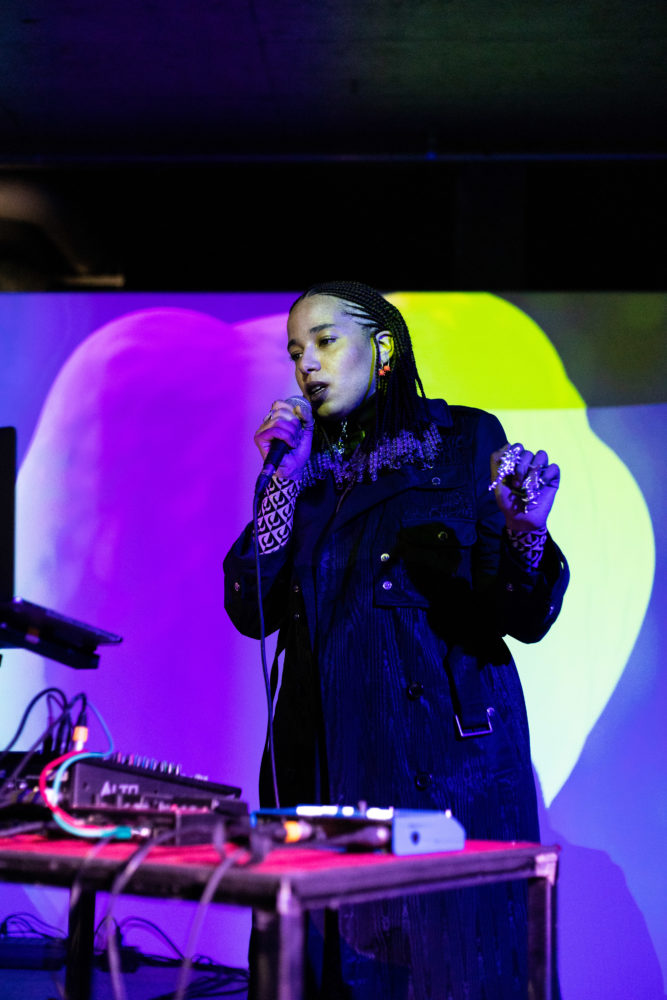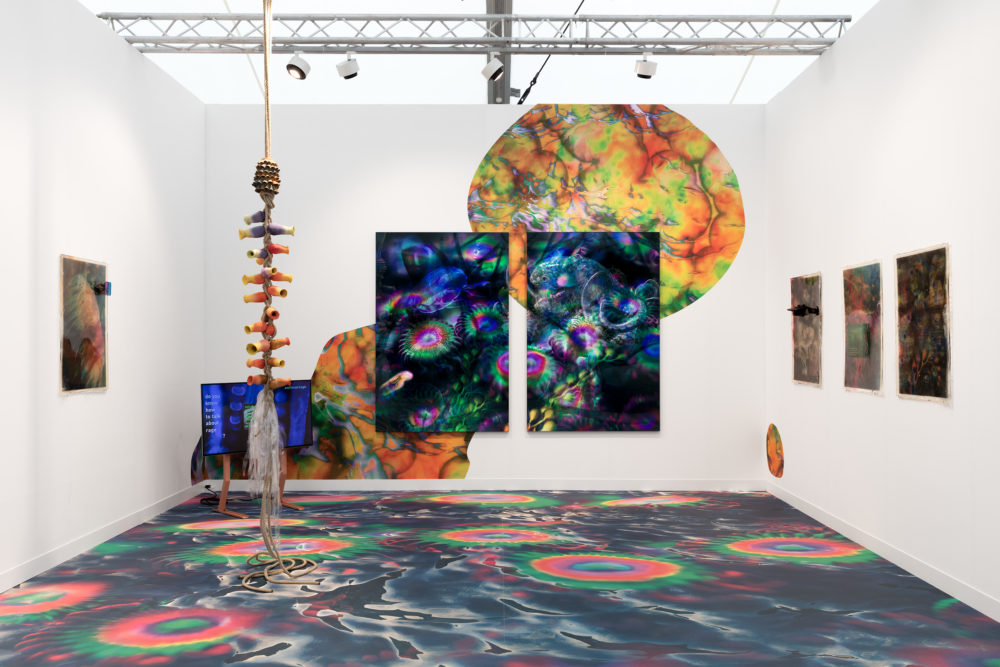News
Josèfa Ntjam and her gallery NıCOLETTı are the winners of the first edition of the FLUXUS – CPGA prize.
13 Oct. 2023
FLUXUS, Frieze London and the Comité Professionnel des Galeries d’Art are delighted to announce that Josèfa Ntjam and her gallery NıCOLETTı are the winners of the first FLUXUS-CPGA Prize, awarded on Friday October 13 in London.
The jury unanimously celebrated the multidisciplinarity and fluidity of Josèfa Ntjam’s work in its various practices: poetry, sound, film, photomontage, sculpture, performance…. At the NıCOLETTı gallery stand dedicated to Josèfa, visitors are immersed in a total work of art, with many open layers of interpretation. The jury also wanted to emphasize that Josèfa belongs to a fantastic new generation of French artists who are revisiting history in a multidisciplinary way. Finally, the jury was keen to salute the commitment of NıCOLETTı, a young London gallery run by two Frenchmen, Camille Houzé and Oswaldo Nicoletti, to promoting Josèfa’s work, which is already very present in France (Centre Pompidou, LUMA, Palais de Tokyo…) and currently being developed in the UK.
The aim of the Fluxus-CPGA prize is to support the talents of the French art scene and to promote its visibility and influence internationally. It also honors the relationship between artists and their gallery. The prize money of £15,000 (approx. €17,400) is shared between the artist and the gallery.
The 6-member jury included Hervé Mikaeloff (independent curator), Helene Nguyen Ban (collector and president of Fluxus), Hans Ulrich Obrist (artistic director, Serpentine Gallery), Florence Ostende (curator, Barbican Art Gallery), Thibault Poutrel (collector) and Maria Sukkar (collector).
“I am absolutely honored to receive the CGPA/Fluxus award and would like to start by thanking the members of the jury who selected my presentation at Frieze. I am even more touched that the jury chose to reward a multi-disciplinary artist and thus give visibility to the minority stories I try to tell in my work, which are inspired by people, events and myths that have opposed organized systems of oppression and exploitation, both on the African continent and in Western societies. Finally, I’m delighted that the ideas of fluidity, hybridity and mutation, which I see as the tools of emancipation to be adopted, have been understood and rewarded.”
Josèfa Ntjam

